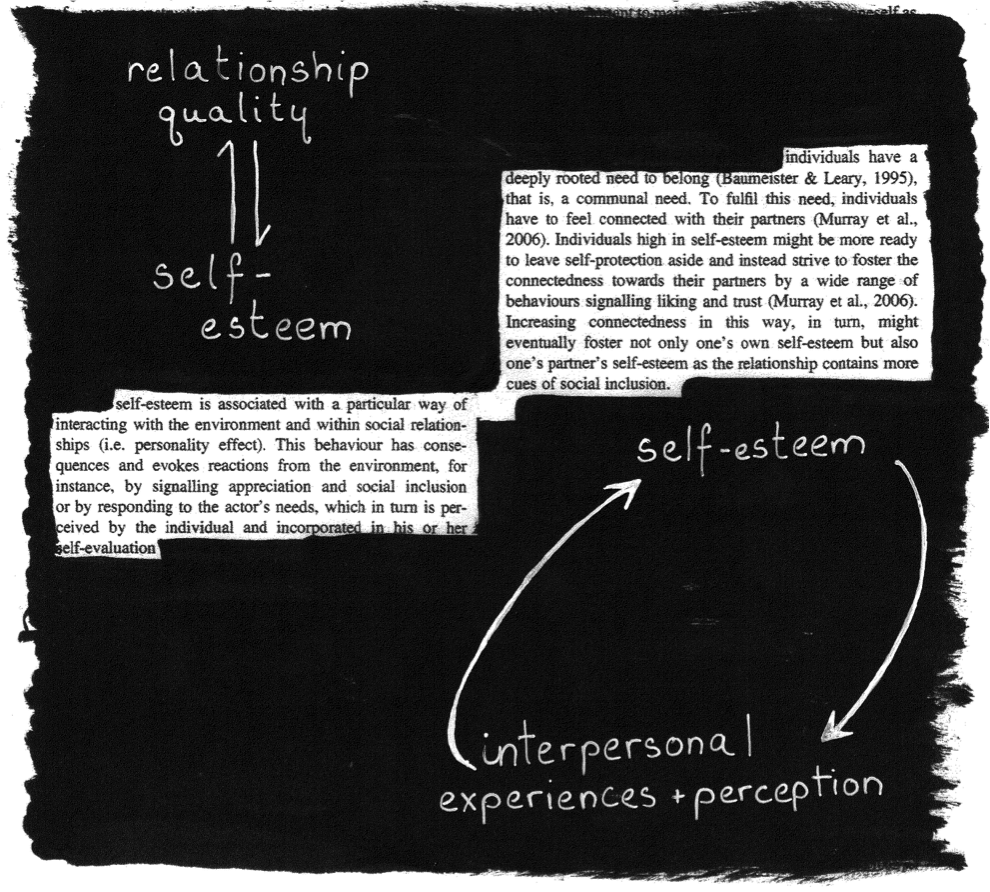 Today, my Writing 101 prompt was to be inspired by a single word from a list provided. Since my partner and I are celebrating our anniversary this month (yay us), I decided to tackle the word ‘love’.
Today, my Writing 101 prompt was to be inspired by a single word from a list provided. Since my partner and I are celebrating our anniversary this month (yay us), I decided to tackle the word ‘love’.
Love is such a massive topic, but let’s talk about relationships. Specifically I want to talk about the ways that relationships change you over time.
Romantic relationships can shape our Personalities
Romantic relationships can have a major impact on personality development in young adults. In a romantic relationship we form a long-term, intimate link with someone who’s not related to us. They are someone who has different experiences growing up, different family structures, different hobbies and values. We choose to interact with and hang out with and love this person and we change as a result. Over the long-term, those changes can be massive. If we’re in a relationship is healthy then those changes can be positive.
Relationship quality and self-esteem and linked
Healthy romantic partnerships are influenced and can be influenced by self-esteem. But like all things the relationship between the two is complicated but there seems to be a positive feedback loop. In general, self-esteem influences the way we interact with the world. Those interactions have consequences and those subsequent events can either bolster or knock down our self-esteem.
This cycle can happen in romantic relationships too. Initial self-esteem can predict later changes in relationship satisfaction. One possible reason was that people with high self-esteem are more likely to engage in ‘risky’ relationship-strengthening behaviours like self-disclosure. On the other hand, behaviours like self disclosure and other ways of communicating affection (smiling, appreciation) make people feel more loved.
The other part of the cycle is that when people feel more loved, the they feel better about themselves and their self-esteem goes up. Increases in relationship quality are associated with increases in self-esteem. With these increases in self-esteem come reduced cognitive biases and the development of more gentle communication strategies over time. In the end this means that partners are more careful with one another, and can focus on the good parts of the relationship.
Romantic relationships can help stabilize neurotic personality types
These positive effects of romantic relationships don’t just apply to self-esteem which can be, admittedly, labile and not a permanent aspect of one’s personality. The Big 5 Personality Traits are five traits measured on a sliding scale that are used to describe people’s personalities. The traits are: Openness, Conscientiousness, Extraversion, Agreeableness and Neuroticism. The last one, neuroticism, has been shown to stabilize among people in healthy romantic relationships. People with high neuroticism tend towards anxiety and depression so this trait is not one you want in abundance. Another marker for people with high levels of neuroticism is that ambiguous situations tend to be interpreted in a negative light rather than a neutral or positive one. This tendency tends goes down when people are in long term relationships in both men and women.
In healthy relationships, the obvious explanation is that partners support one another and that can directly diminish anxiety and other characteristics of neuroticism. As I described above, when people feel cared for and loved they feel more confident and probably more relaxed.
However, there’s more to it than that. Having a romantic partner can strengthen the thought processes that that perceive things positively rather than negatively. In effect, healthy romantic relationships increase the occurrence of positive emotions and allows an individual to see the world in a more positive light and experience it with more confidence.
It’s interesting to consider my own relationship with this knowledge. My partner has been super supportive and I am so grateful for that. Looking for a job is the dumps but having someone who’s got my back is a huge help.
What about you? Are you in a partner relationship? How has it affected you over time? Do you think you’d be as confident and happy if you weren’t in a relationship? Why don’t you tell you partner how much you appreciate them. In the long run the happier your partner is the happier and more confident you can become.
Cheers,
Resources:
Mund, M., Finn, C., Hagemeyer, B., Zimmermann, J., & Neyer, F. J. (2015). The Dynamics of Self‐Esteem in Partner Relationships. European Journal of Personality, 29(2), 235-249.
Finn, C., Mitte, K., & Neyer, F. J. (2015). Recent decreases in specific interpretation biases predict decreases in neuroticism: Evidence from a longitudinal study with young adult couples. Journal of personality, 83(3), 274-286.


No Comments